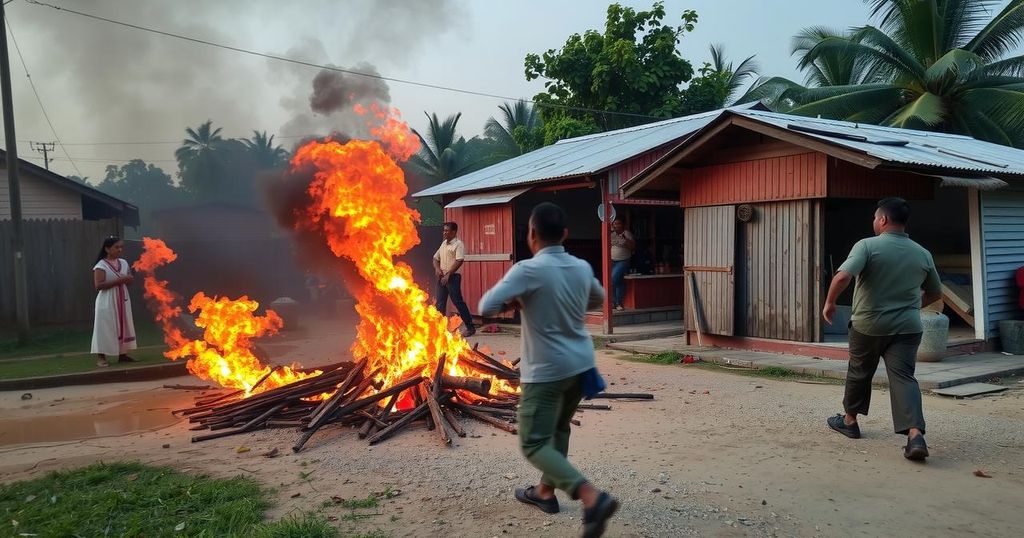Escalation of Ethnic Conflict in Manipur as Myanmar Fighters Return
The resurgence of militants from Myanmar in Manipur has exacerbated ethnic conflicts, particularly between the Meitei and Kuki communities, leading to significant violence and displacement. Approximately 260 fatalities have been reported since May 2023. Indian authorities are responding with increased military presence amidst rising crime linked to insurgencies. The conflict has historical roots, inflamed by recent court decisions impacting government benefits. This situation requires urgent attention to restore peace and stability.
Fighters from various Indian militant groups, who had sought refuge in Myanmar amidst its civil war, have increasingly returned to Manipur, exacerbating the existing ethnic conflict in the region. The ongoing clashes between the predominantly Hindu Meitei community and the primarily Christian Kuki tribes have intensified, culminating in the death of around 260 individuals since May 2023, with over 60,000 displaced. The recent influx of these trained militants, along with more advanced weaponry, has raised concerns regarding the escalating violence and crime—primarily extortion and drug trafficking—to finance rival factions. Moreover, security measures have seen a surge, with nearly 67,000 troops now stationed in Manipur to restore order.
The tension between the communities originated from a controversial court decision favoring enhanced benefits for the historically disadvantaged Kuki tribes, which angered the Meitei population residing in the Imphal valley. Over the past decade, various insurgent groups, previously managed by authorities, are regaining influence as they return from Myanmar. Meitei militants are reportedly collaborating with the ruling junta in Myanmar’s civil war, while the Kukis receive support from Kachin rebels, leading to a dangerous cycle of armed confrontation.
Reportedly, substantial numbers of fighters have returned to Manipur, with estimates suggesting over 100 Meitei insurgents apprehended recently, along with 50 Kukis. The sophisticated weapons being utilized stem from illicit imports, many from Myanmar. The combination of local extortion practices and illegal opium cultivation appears to support these militant endeavors. The Indian government has initiated plans to fortify the border with Myanmar to address these multifaceted security challenges.
The conflict in Manipur is rooted in deep-seated ethnic tensions between the Meitei and Kuki communities, which have escalated over time due to political, social, and economic disparities. Recent events, specifically a court ruling aiming to modify government benefit distributions, have aggravated these historical grievances, sparking widespread violence and unrest in the region. Further complicating the situation, militants from both sides are now crossing into Manipur equipped with modern weaponry, as they find refuge and support across the porous border with Myanmar. The influx of battle-hardened fighters returning to their native land poses a significant challenge to local law enforcement and federal security efforts. The underlying issues of militancy, ethnic identity, and access to resources remain at the crux of the conflict.
The current situation in Manipur highlights the intricate web of ethnic conflict intertwined with broader geopolitical dynamics from Myanmar. As militant groups strengthen due to increased weaponry and support, the Indian government’s efforts to control the situation through military deployment and border fortifications become increasingly crucial. The rise of crime, driven by funding needs for insurgent activities, complicates reconciliation efforts between the communities. The ongoing violence and rising casualties underscore the urgent need for a comprehensive approach to address both the ethnic strife and the militarization of conflict in the region.
Original Source: theprint.in








Post Comment